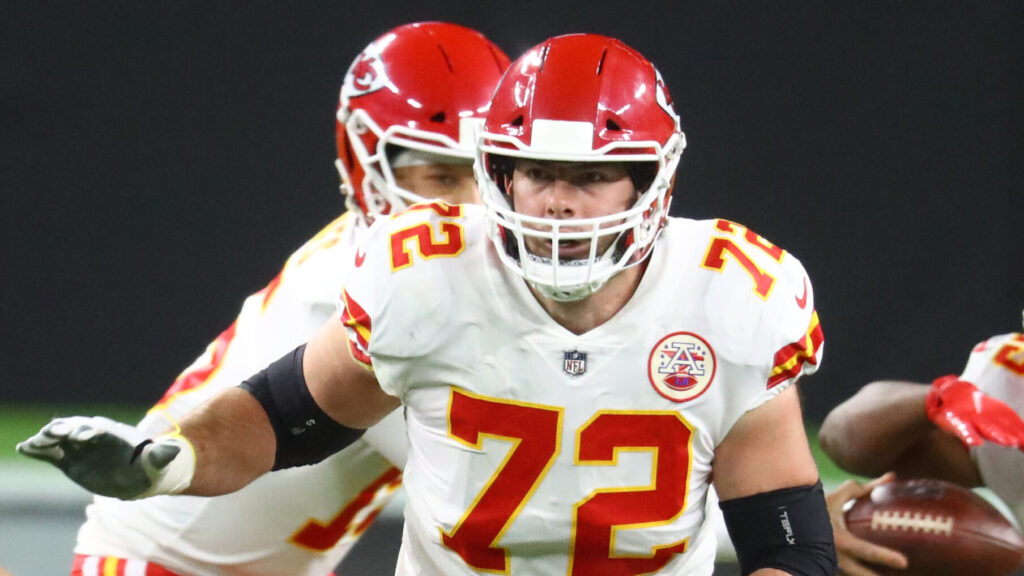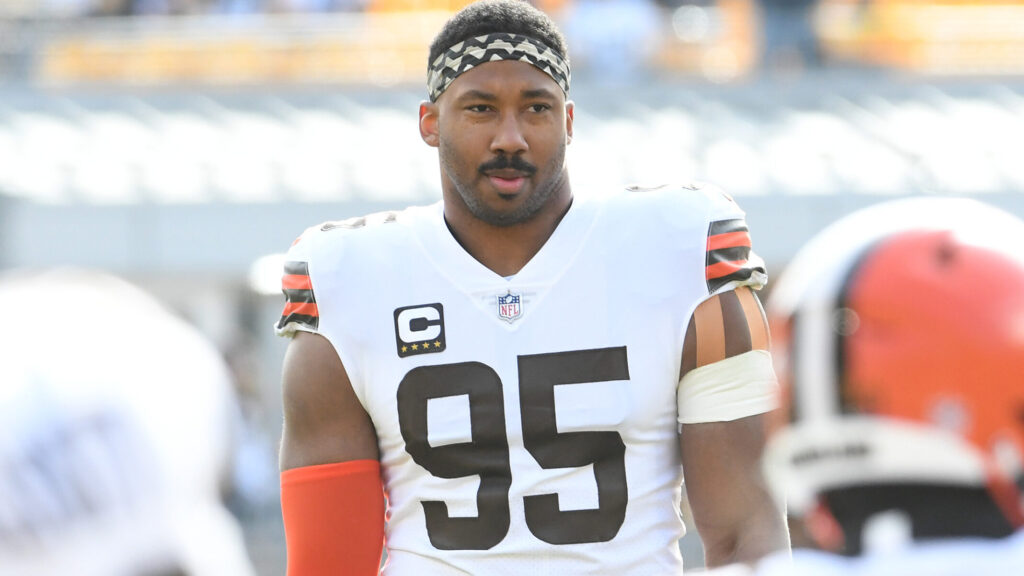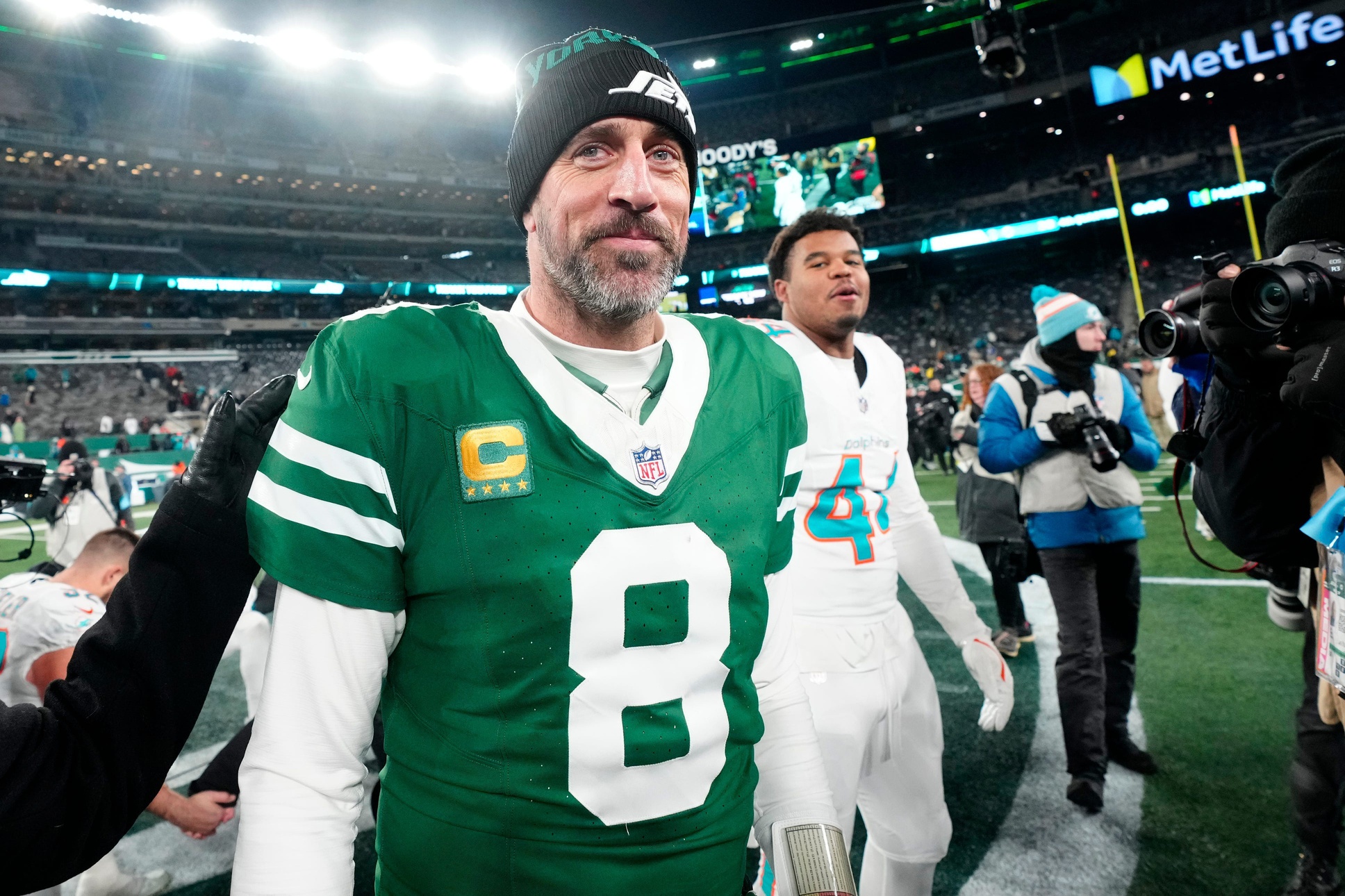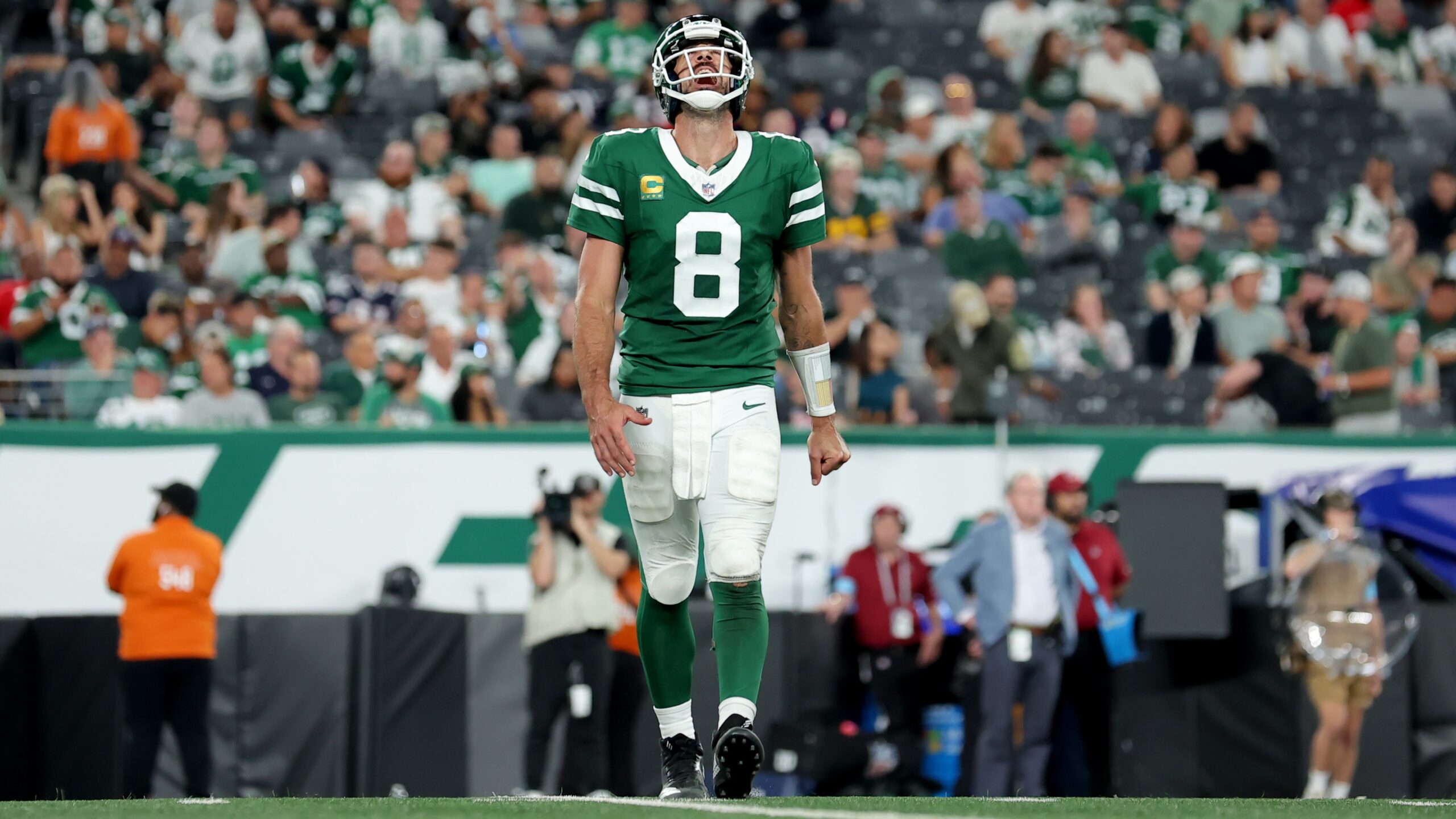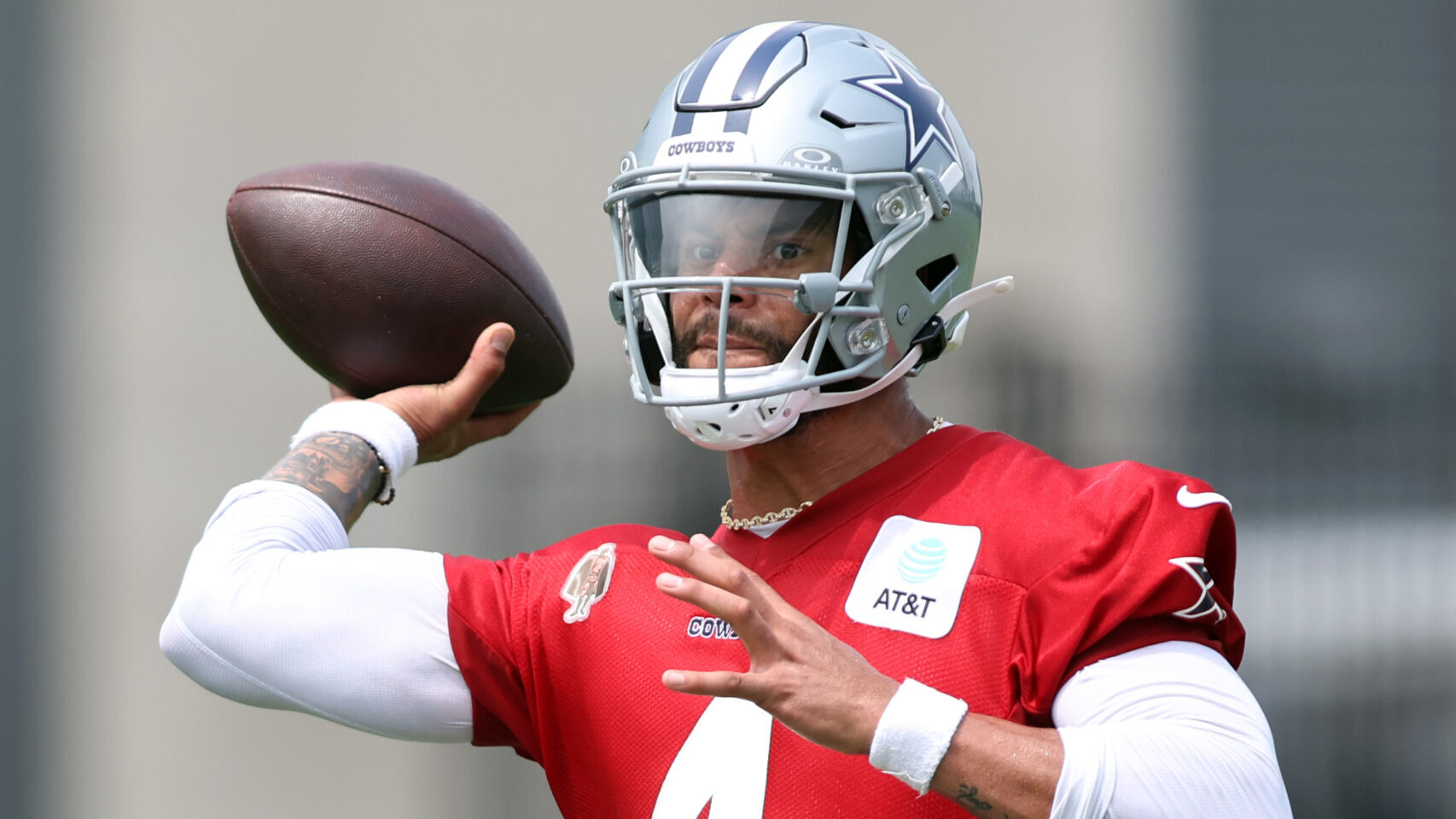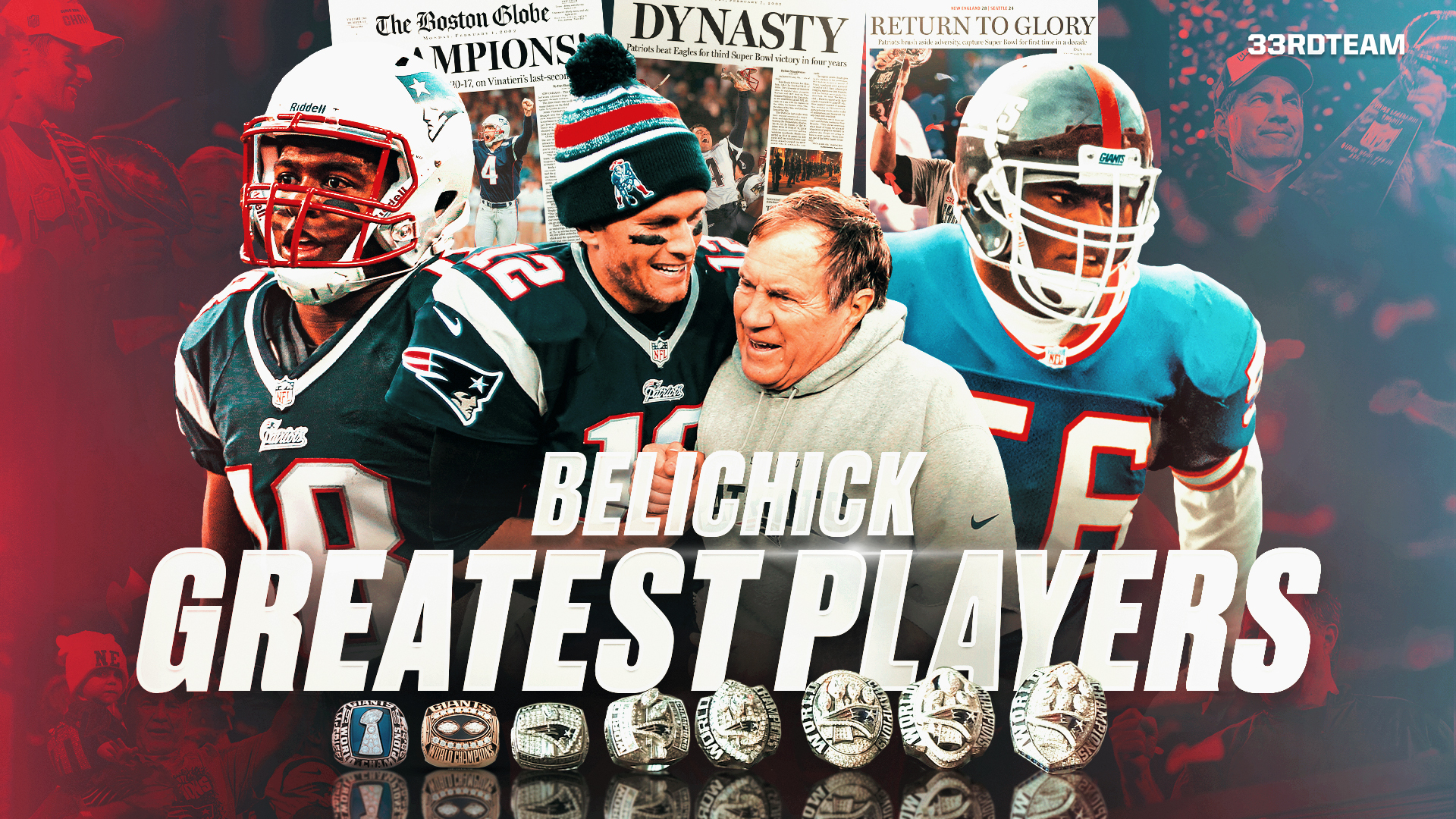Analysis
4/19/23
12 min read
Worst to First: Ranking the No. 1 Overall NFL Draft Picks Since 2000
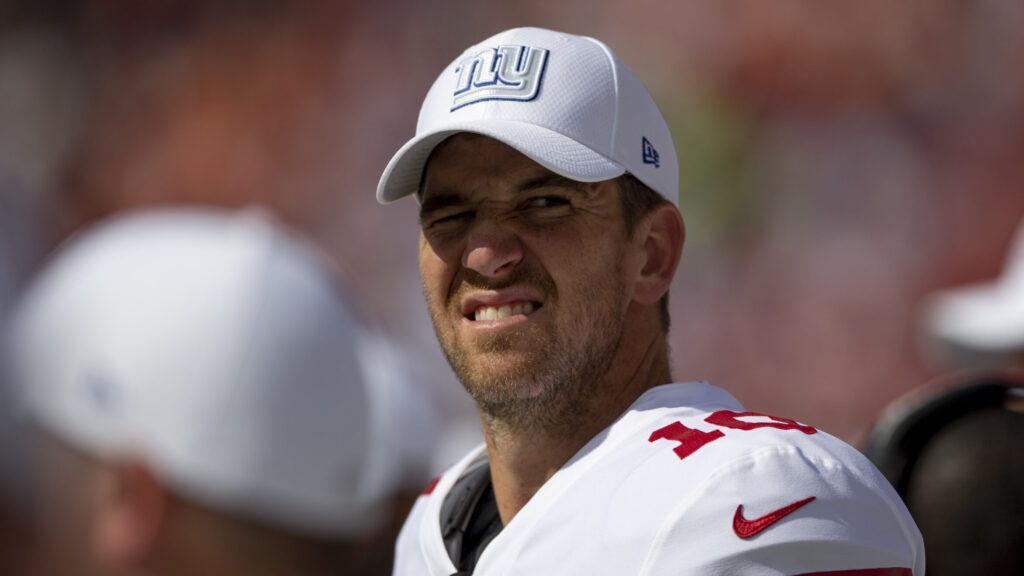
Does anyone doubt a quarterback will be selected to open the 2023 NFL Draft? We don’t, whether it is Ohio State's C.J. Stroud (scouting report) or Alabama's Bryce Young (scouting report). History in this century tells us that’s how it will pan out: 16 of the 23 No. 1 overall picks have played the position.
Not all of them became stars – or even long-term starters. Same for some of the other top choices, which makes our rankings of those players a more difficult chore. Here’s what we came up with for the top overall picks from the 2000s, ranked from worst to best.
Others in this Series:
- Each NFL Team’s Best Late-Round Draft Gem
- Best First-Round NFL Draft Picks for Each Team
- Every NFL Team’s Biggest First-Round Draft Mistake
- Top 10 Draft Classes Since 2012
- 10 Worst Classes Since 2012
- Nine Best Drafting Teams Since 2000
- Every NFL Team's First-Round Bargains
No. 1 Overall Picks, Worst to Best
2007 – Oakland Raiders: JaMarcus Russell, QB, LSU
Hard – or impossible – to argue with this misguided selection. If Russell wasn’t the worst No. 1 pick ever, he falls to the bottom among quarterbacks grabbed immediately. Football wasn’t important to him, his work ethic was, to be kind minimal, and he flamed out quickly despite being paid more than $39 million by the Oakland Raiders before being cut after three seasons.
Russell had 23 interceptions, 15 lost fumbles and a passer rating of 65.2.
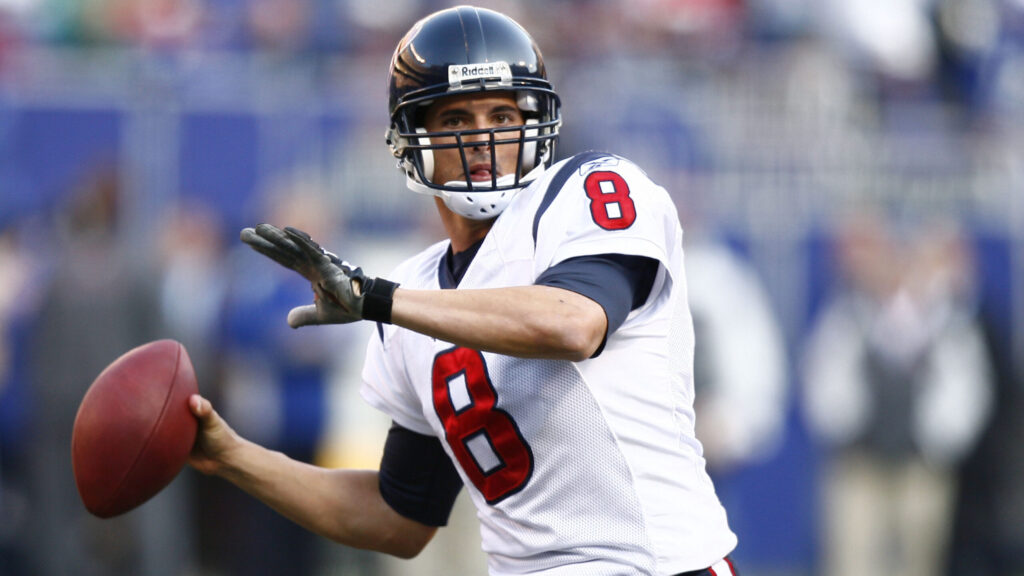
2002 – Houston Texans: David Carr, QB, Fresno State
The older brother of Derek Carr was the first draft pick the Houston Texans ever made. The problem was they had nothing around him in one of the worst franchise-building performances by an NFL team. Houston never could protect Carr, and it rattled him. After surviving a rookie season in which he was sacked 78 times – ouch – Carr never progressed beyond mediocre.
To be fair, neither did the Texans back then, and his final five seasons were spent as a backup.
2022 – Jacksonville Jaguars: Travon Walker, LB, Georgia
This one gets an incomplete because Travon Walker has played only one NFL season. Still, while the other candidate to go No. 1, DE Aidan Hutchinson, finished second in Defensive Rookie of the Year voting with the Detroit Lions, Walker’s impact was minimal. Of course, he could become a star with the rising Jacksonville Jaguars.
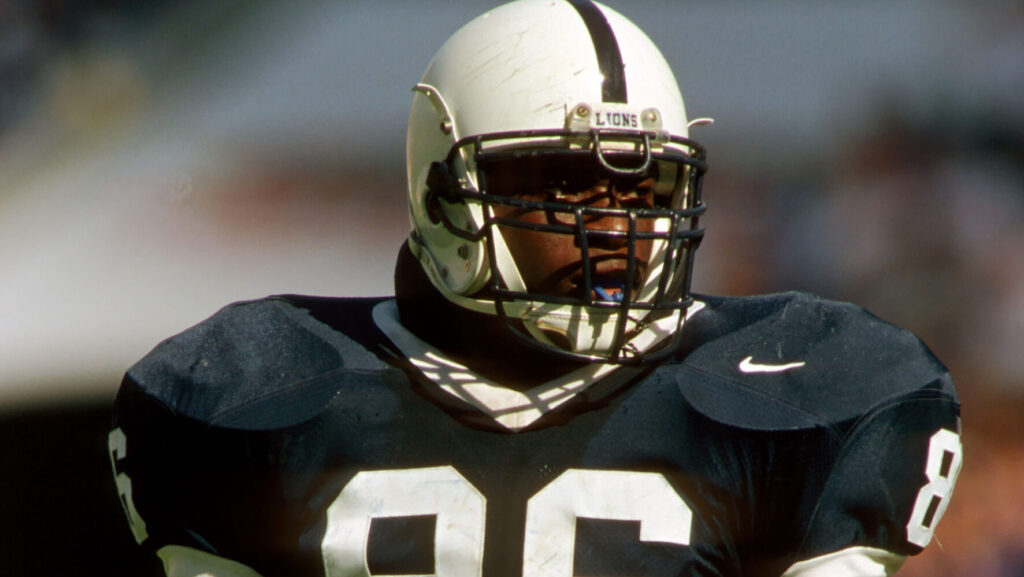
2000 – Cleveland Browns: Courtney Brown, DE, Penn State
A stud pass rusher and run-stopper in college, Brown wasn’t a bust in the pros. He simply wasn’t the kind of difference-maker a top selection should be. Plagued by injuries, Brown lasted six NFL seasons, the first five with the Cleveland Browns, then one with the Denver Broncos. After a strong rookie year in which he had 69 tackles and 4.5 sacks, Brown never progressed much.
2010 – St. Louis Rams: Sam Bradford, QB, Oklahoma
One of three Sooners quarterbacks who went at the top of the draft this century, Bradford rarely was healthy during his nine pro seasons, including 2014, which he missed entirely. Only twice, in 2010 and 2012, did he start all 16 games. His rookie year was terrific, completing 60 percent of his passes for 3,512 yards and 18 touchdowns, though he threw 15 interceptions.
Unable to build much on that Offensive Rookie of the Year performance, his career record was 34-48-1 with four teams.
2013 – Kansas City Chiefs: Eric Fisher, OT, Central Michigan
We have lauded the draft work in this century for franchises employing Andy Reid. This pick, the first in Reid’s Kansas City Chiefs regime, was not the wisest. Eric Fisher became the anchor of the line at left tackle and was dependable for eight seasons with the Chiefs. He even made two Pro Bowls.
But when you take a tackle at the top spot, you’re hoping he becomes Anthony Munoz or Walter Jones. It shouldn’t be ignored, however, this was a relatively weak first round for all teams, though the Eagles got RT Lane Johnson at No. 4.
2015 – Tampa Bay Buccaneers: Jameis Winston, QB, Florida State
Hardly anyone believed Jameis Winston wouldn’t be a major star and the fulcrum of the Tampa Bay Buccaneers’ rise in the NFC. That seemed certain when he finished second to Todd Gurley in top offensive rookie voting and made the Pro Bowl. In his second season, the Buccaneers went 9-7.
But bad decisions and poor reading of defenses curtailed his development – in 2019, his final season in Tampa, Winston led the league with 626 attempts and 5,109 yards. And, unfortunately, 30 interceptions. He barely played the past three years in New Orleans.
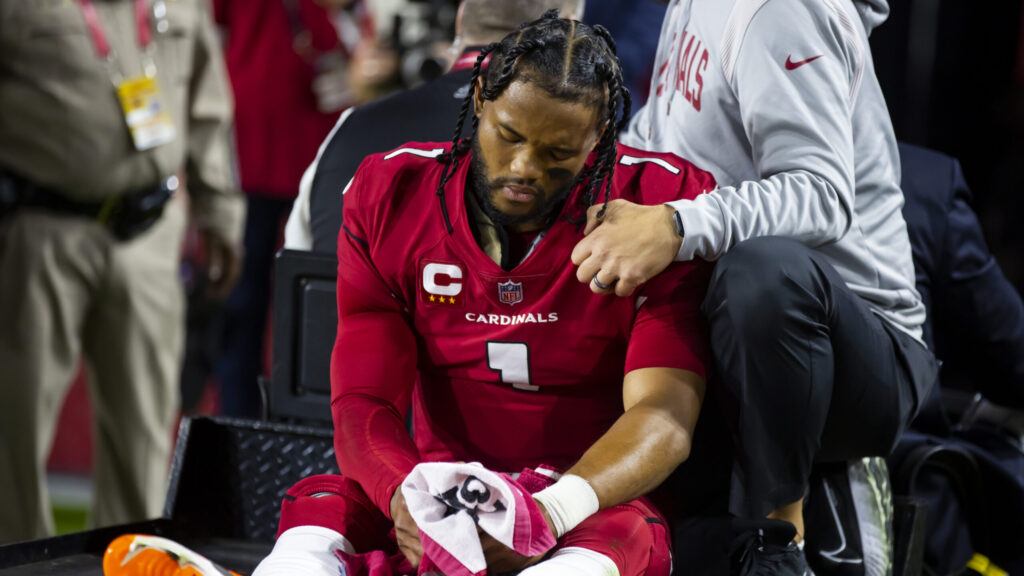
2019 – Arizona Cardinals: Kyler Murray, QB, Oklahoma
The last of the three Sooners quarterbacks to lead off the draft, Kyler Murray is the most mystifying. In his four seasons with the Arizona Cardinals, Murray has been the Offensive Rookie of the Year, made the Pro Bowl twice and faded badly at the end of schedules.
He’s now recovering from a torn ACL after going 3-8 last season. His lack of height (5-foot-10), difficulties reading defenses and, perhaps, his study habits – as indicated by the original language in his second pro contract – have been problematic.
2018 – Cleveland Browns: Baker Mayfield, QB, Oklahoma
This quarterback crop was projected as one of the best of the century, with the Browns taking Baker Mayfield rather than Sam Darnold, Josh Allen, Josh Rosen or Lamar Jackson in the opening round. Allen in Buffalo and Jackson in Baltimore have come through. Not so the others and Mayfield is now with his fourth club, Tampa Bay.
Still, there were some bright spots, mainly his helping Cleveland break a 17-year string of non-playoff appearances, even winning a postseason game over archrival Pittsburgh in the 2020 pandemic season.
2014 – Houston Texans: Jadeveon Clowney, DE, South Carolina
Considering the latent talent Jadeveon Clowney possessed, it was understandable the Texans grabbed him at No. 1. He was even compared by some to Lawrence Taylor. Turned out he never fully reached his potential as a game-breaking threat. At the height of his career – he is still in the league – Clowney made three Pro Bowls. But he’s never reached double digits in sacks and has been considered a locker room debit.
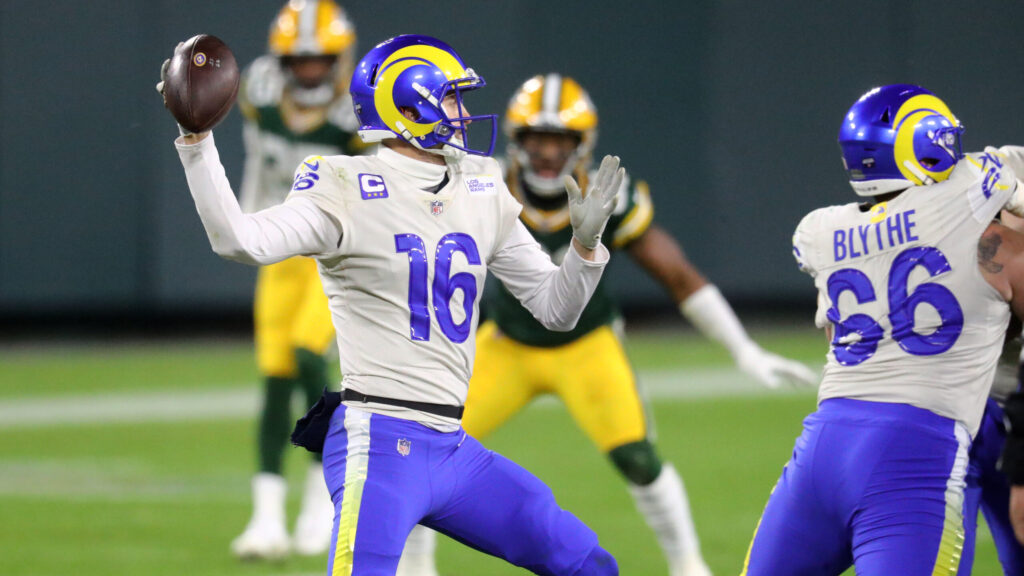
2016 – Los Angeles Rams – Jared Goff, QB, California
Jared Goff too often has been downgraded, though his career has headed upward while that of the second overall selection in 2016, Carson Wentz by the Philadelphia Eagles, has gone the other way. Goff was not the main reason the Los Angeles Rams won the NFC in 2018; some joke he was the major reason the Rams won the 2021 league championship because he was traded to the Detroit Lions for Matthew Stafford.
But Goff is coming off his best pro season in a scheme that fits him and could yet develop into a standout.
2008 – Miami Dolphins: Jake Long, OT, Michigan
Bill Parcells was running football operations for the Miami Dolphins and became enamored with the Michigan tackle. This was not one of the best draft classes of this century, though two outstanding quarterbacks Miami might have chosen went elsewhere in the opening round: Matt Ryan to Atlanta and Joe Flacco to Baltimore.
Long was a solid selection, however, making the Pro Bowl in each of his first four campaigns and starting every game he was healthy for in his first seven seasons. He played five years for the Dolphins, then was with the Rams, Falcons and Vikings in a nine-year career.
2001 – Atlanta Falcons: Michael Vick, QB, Virginia Tech
NFL fans will always wonder how accomplished the enigmatic Vick could have been. Instead of setting records on the field, Vick always will be associated with serving jail time for his role in a dogfighting case. The Atlanta Falcons traded up with the San Diego Chargers to get Vick – the Chargers wound up with a quarterback at the top of the second round, Drew Brees.
Vick delivered some of the most dynamic quarterback play in NFL history, including four Pro Bowl selections, an appearance in the 2004 NFC title game and something of a ground-breaking style that featured his quick feet combined with a howitzer arm. After missing the 2007 and 2008 schedules, Vick won the 2010 Comeback Player of the Year honor with Philadelphia. But his career record was 61-51-1 as a starter.
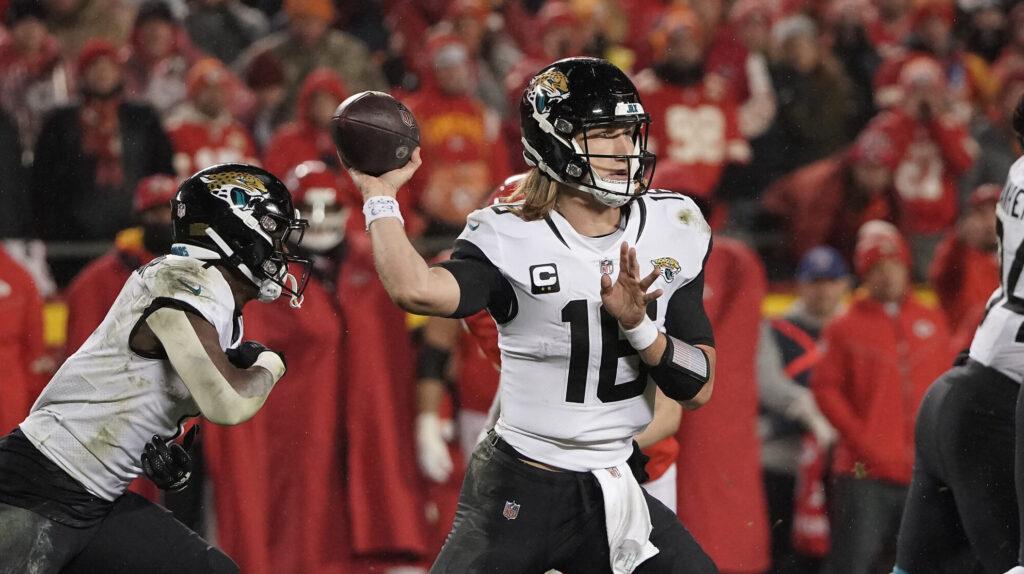
2021 – Jacksonville Jaguars: Trevor Lawrence, QB, Clemson
Granted there is a lot of projection here, but we fully believe Trevor Lawrence is headed toward the elite group of quarterbacks in the powerful AFC. His second season catapulted our optimism, particularly his leading the Jaguars from a 3-7 record to 9-8, an AFC South crown and a rally from down 27-0 to a playoff victory against the Los Angeles Chargers.
He has the perfect head coach in Doug Pederson, the tools are there, as is Lawrence’s attitude. We can see Lawrence approaching the level of Joe Burrow and Allen.
2012 – Indianapolis Colts: Andrew Luck, QB, Stanford
Oh, what could have been? Luck was the generational quarterback every franchise seeks, the proper successor to Peyton Manning for the Indianapolis Colts. He was all of that, making four Pro Bowls, leading his team to the 2014 AFC title match and winning Comeback Player of the Year honors in 2018 after being injured for the ’17 season.
Alas, that was it for Luck, who walked away from the sport in 2019, plummeting the Colts into something of a quarterback abyss. Luck went 53-33, threw for 171 touchdowns to 83 interceptions, and was on track to have a Hall of Fame career.
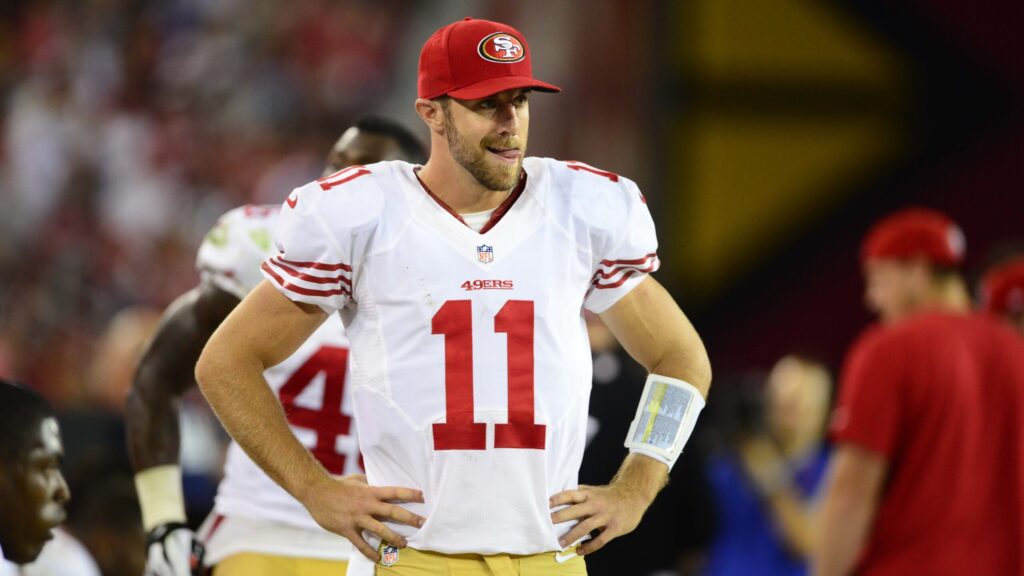
2005 – San Francisco 49ers: Alex Smith, QB, Utah
Alex Smith should not be remembered just for his courageous comeback from one of the ugliest knee injuries in football annals. Not for the San Francisco 49ers selecting him while California boy Aaron Rodgers was in this crop. Smith achieved a lot more than immediately is recognized.
He went 99-67-1 with three franchises, taking the 49ers to the 2011 NFC Championship Game and leading the Chiefs to four playoff appearances before yielding the quarterback job to Patrick Mahomes. Smith also finished in the top six in Comeback Player of the Year balloting two times before winning the award in 2020. Talk about perseverance.
2006 – Houston Texans: Mario Williams, DE, North Carolina State
The Texans fared much better with this draft opener than when they began things in 2002 with David Carr. While Williams had some of his best seasons with the Buffalo Bills in the back end of his NFL career, he was just fine for the Texans.
He made two Pro Bowls with each team and got 53 of his 97.5 sacks with Houston. He wasn’t Bruce Smith or Lee Roy Selmon, other first-overall defensive ends, but Williams did his job well.
2011 – Carolina Panthers: Cam Newton, QB, Clemson
The 2015 league MVP as the Carolina Panthers won the NFC with a 15-1 record, Cam Newton could be unstoppable when on his game. A powerful and surprisingly fast runner with a bazooka for an arm, Newton was proud of his nickname of Superman.
For most of his first seven pro seasons, he was just that. His rushing ability as threatening as his passing. The top offensive rookie in 2011, Newton’s comet tailed off quickly, going 13-23 as a starter in his final four NFL campaigns.
2003 – Cincinnati Bengals: Carson Palmer, QB, USC
Here’s a guy who helped turn around two beleaguered franchises: the Cincinnati Bengals and Cardinals. A classic pocket quarterback for much of his career, Palmer made three Pro Bowls, twice got solid consideration in the MVP race and had a 62.5 career completion percentage.
His 92-88-1 record is impressive considering the three teams he played for from 2003-2017 while compiling 294 touchdowns to 187 interceptions. A solid pick.
2017 – Cleveland Browns: Myles Garrett, DE, Texas A&M
What Brown and Clowney might have been is what Myles Garrett is turning out to be for the Browns, who employed both of those other pass rushers. Garrett is a four-time Pro Bowl pick and a sack machine.
Cleveland’s defense has underachieved at times during his six-year career, but that is not Garrett’s fault. He has 74.5 sacks, 142 QB hits and 13 forced fumbles. Oh yeah, he plays the run well, too. A strong No. 1 overall selection.
2020 – Cincinnati Bengals: Joe Burrow, QB, LSU
As with Lawrence, perhaps we are projecting a lot with Joe Burrow. Or maybe not, considering he’s as accomplished as any No. 1 overall pick this century has been during his first three seasons. Burrow is the closest thing to NFL quarterbacks king Mahomes and even led the Bengals past Mahomes and the Chiefs for the 2021 AFC title.
The Bengals nearly won the Super Bowl that season, too, even though Burrow, that year’s Comeback Player, was sacked 51 times. He followed up with another superb campaign and has thrown 82 TDs with 31 INTs.
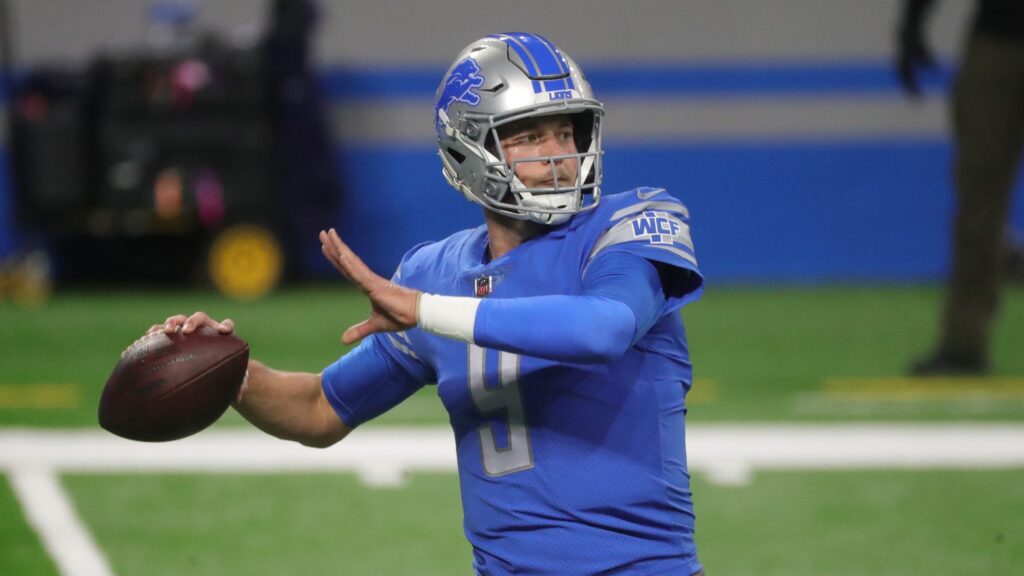
2009 – Detroit Lions: Matthew Stafford, QB, Georgia
This one makes the folks in the Motor City drive off the road. But Stafford belongs almost at the top of this list, whether for surviving all of those years with the poorly-managed Lions or for his career-defining 2021 championship season with the Rams. Some observers believe Stafford is a borderline Hall of Famer.
Three times before being dealt to L.A., Stafford guided the Lions into the playoffs. He averaged 23.5 touchdowns in his dozen Detroit seasons against 12 interceptions. Stafford was the 2011 Comeback Player of the Year and still might have another deep playoff run in him.
2004 – San Diego Chargers (traded to New York Giants): Eli Manning, QB, Mississippi
An easy choice as the best of this century. The evidence is clear: Manning took the New York Giants to Super Bowl titles with good but not great rosters – but with superb coaching, to be fair.
Among the quarterbacks he outplayed in the postseason were Brett Favre, Rodgers, Ryan, Smith, Tony Romo and some guy named Tom Brady. Twice.
Indeed, the resourcefulness and savvy Manning displayed in New York’s stunning upset of the undefeated New England Patriots in February 2008 lifts him high. And then came the precision and perseverance four years later in defeating Brady and the Patriots for another championship. Yes, Manning’s career totals aren’t overly impressive. His postseason resume is Canton-worthy.
Barry Wilner was a sportswriter for the Associated Press for 46 years. He has covered virtually every major sporting event, including 14 Olympics, 9 World Cups, 34 Super Bowls, the World Series, and the Stanley Cup Final, and has written 75 books. Follow him on Twitter @Wilner88




